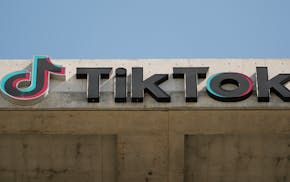Shares of the two biggest food sellers based in Minnesota — Target Corp. and Supervalu Inc. — and other grocery companies tumbled Friday on the news that Amazon.com Inc. was buying the upscale grocer Whole Foods Market Inc.
Investors perceived the deal marked a giant step in Amazon's evolution from the leading online retailer into one with a near-pervasive presence in the lives of American consumers.
And investors also worried about the significance of the deal on food makers and processors, including General Mills Inc. The purchase raises the profile of Whole Foods' mix of fresh and organic products and gives Amazon greater pricing power with food producers.
As well, investors for years have held Amazon to different standard than other companies, focusing more on the Seattle-based company's ability to grow and innovate rather than produce profits. "It's a little different when you're Amazon," Jan Rogers Kniffen, a retail consultant in New York, told Reuters. "Whole Foods has to make money, Amazon doesn't have to make money. All Amazon's got to do is grow."
The broad market finished the day mixed with the Dow Jones industrials marginally higher. Shares in Amazon and Whole Foods both rose.
Supervalu shares closed down 14 percent, regaining some ground after being down around 18 percent earlier in the morning. The Eden Prairie-based company derives most of its revenue as a wholesaler to grocery chains, but it gets about one-third from retail operations, including the Cub Foods chain that is the top grocery in the Twin Cities market.
Shares in Target finished down 5 percent. The Minneapolis-based retailer gets about one-fifth of its revenue from groceries and has been struggling to adjust its inventory to shifting consumer preference away from processed foods and to more fresh products.
Shares in Walmart Stores Inc., the nation's largest seller of groceries, fell 4.6 percent. The Arkansas-based retailer, which is also the largest U.S. company by revenue, announced a major deal of its own Friday with the $310 million purchase of Bonobos, a men's apparel chain.
Kroger Co. shares closed down 9.2 percent. In addition to the new pressure from Amazon, investors in the second-largest grocery chain in the U.S. were still grappling with the reduced earnings outlook it issued yesterday. Kroger shares fell 19 percent Thursday, their biggest-one day drop in 17 years.
General Mills shares finished down 3 percent. Kellogg Co. shares were off 1.8 percent.
Amazon said it plans to keep Whole Foods operating independently under its own brand name. Even so, investors and analysts immediately speculated that Seattle-based Amazon will be able to use Whole Foods' national retail footprint for its own purposes.
"It seems like a bit of an odd purchase because it is brick-and-mortar retail," Tim Ghriskey, chief investment officer of Solaris Asset Management in New York told Reuters. "On the other hand it gives them a distribution footprint to deliver goods in a short time frame ... It gives them a presence. The stores can be expanded to do other things."
Evan Ramstad • 612-673-4241
Biden administration moves to make conservation an equal to industry on US lands
Stock market today: Wall Street limps toward its longest weekly losing streak since September

